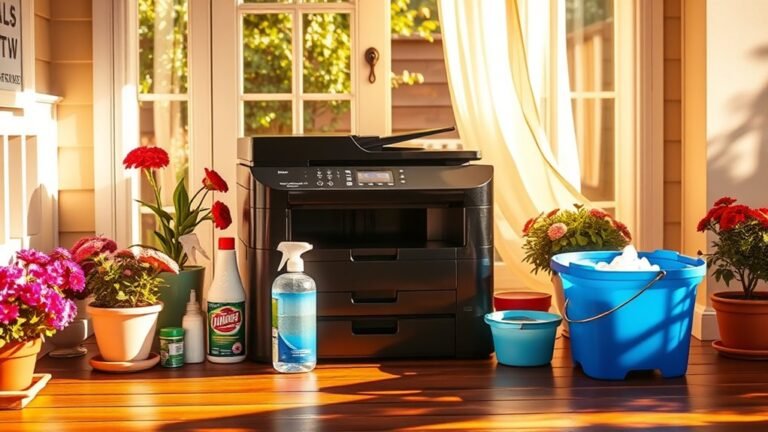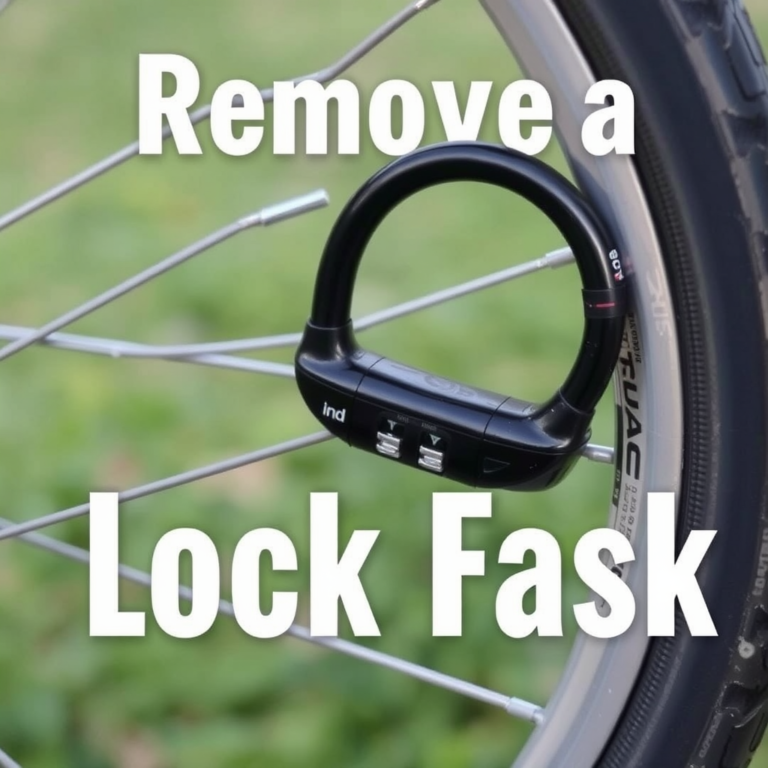How Often Should I Clean My Night Guard
You should clean your night guard daily to maintain ideal hygiene and prevent bacteria buildup. Start by rinsing it under lukewarm water to remove any debris. Use a soft toothbrush and mild soap to scrub all surfaces, and rinse thoroughly afterward. Additionally, aim for a deep cleaning once a week using a vinegar and water solution. Sticking to this routine will help extend your night guard’s lifespan, and there’s more you might find useful to guarantee proper care.
Preparation For Cleaning
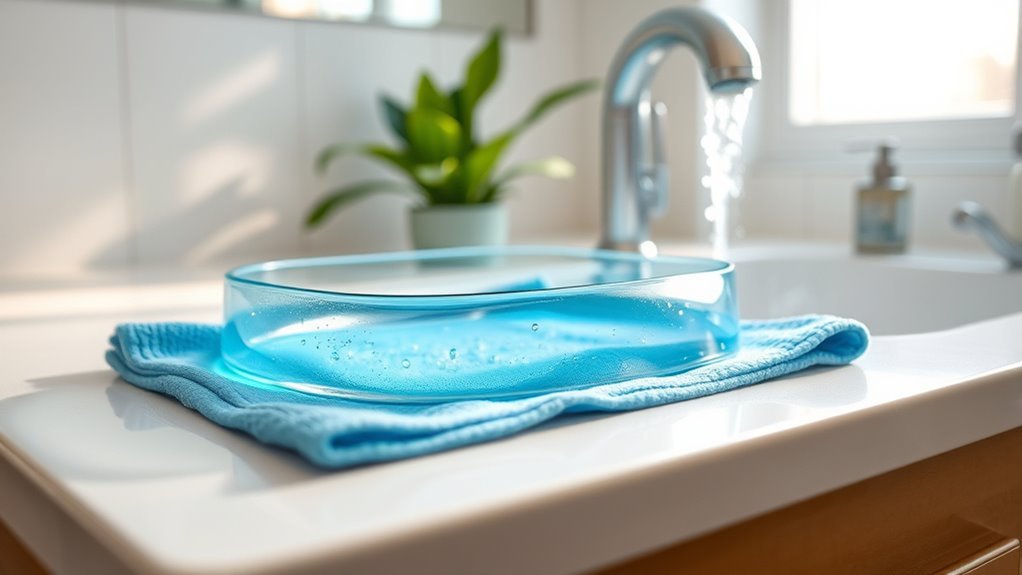
Before you plunge into cleaning your night guard, it’s essential to gather the right materials to guarantee an effective process. Start by collecting gentle soap or a specialized cleaner designed for dental devices. You’ll also need a soft toothbrush or a cloth to avoid scratching your night guard. Remember, the cleaning frequency is important; ideally, clean your night guard daily to prevent bacteria buildup and maintain freshness. Additionally, having a designated storage case is crucial to keep your night guard safe and clean when not in use. By preparing these night guard materials beforehand, you’ll secure a smoother cleaning experience, allowing you to enjoy the freedom of a well-maintained dental device that supports your oral health.
Tools and Chemical Required
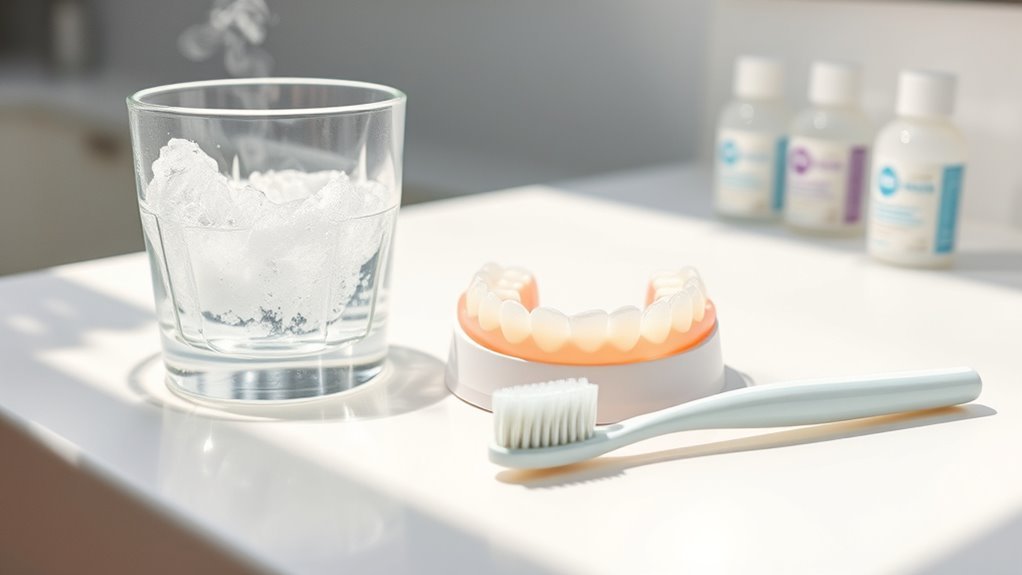
Having the right tools and chemicals on hand can make the cleaning process more effective and efficient. To maintain your night guard properly, consider these essential items:
| Tool/Chemical | Purpose | Maintenance Tips |
|---|---|---|
| Soft-bristle brush | Gentle cleaning | Brush daily after use |
| Mild soap | Disinfecting | Rinse thoroughly afterward |
| Cleaning solution | Deep cleaning | Follow manufacturer’s instructions |
Utilizing appropriate cleaning solutions helps eliminate bacteria and odors. Regularly maintaining your night guard not only extends its lifespan but also guarantees it remains hygienic. With these tools and tips, you’ll keep your night guard in top condition, allowing you the freedom to sleep soundly every night.
How to Clean:
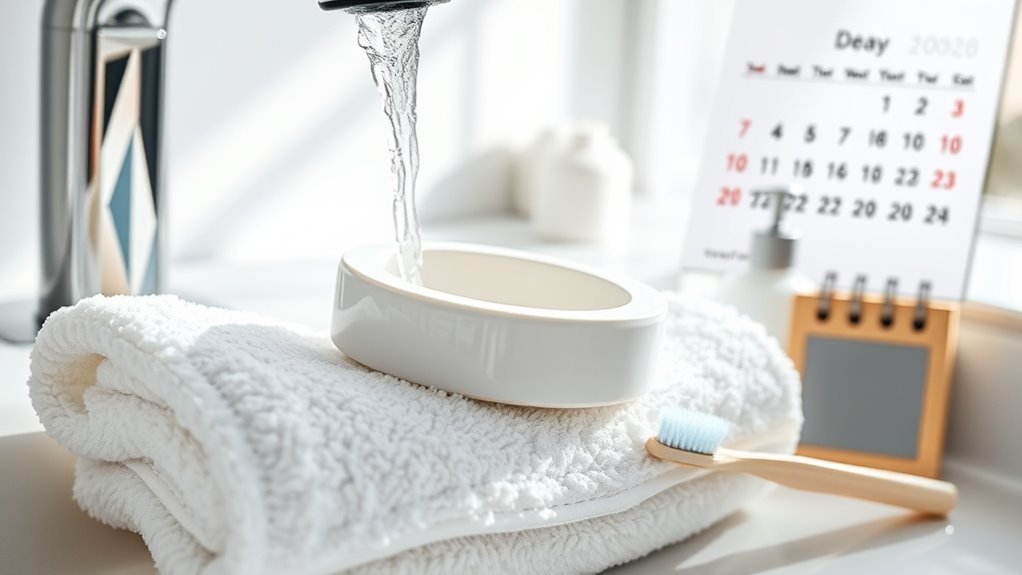
How to Clean Your Night Guard: A Step-by-Step Guide
Cleaning your night guard is essential for maintaining oral hygiene and ensuring the longevity of the device. Follow these detailed steps to properly clean your night guard.
Step 1: Rinse Your Night Guard
- Begin by rinsing your night guard under lukewarm water.
- This initial rinse helps to remove any saliva or debris that may have accumulated overnight.
Step 2: Prepare Your Cleaning Materials
- Gather a soft toothbrush and a mild soap or a non-abrasive denture cleaner.
- Avoid using toothpaste, as it can be too abrasive and may damage the surface of your night guard.
Step 3: Scrub the Night Guard
- Using the soft toothbrush, apply a small amount of mild soap or denture cleaner to the bristles.
- Gently scrub all surfaces of the night guard, paying attention to any areas that may have visible stains or buildup.
- Make sure to clean both the inner and outer surfaces thoroughly.
Step 4: Rinse Again
- After scrubbing, rinse your night guard thoroughly under lukewarm water.
- This step is crucial to eliminate any soap residue that may remain on the device.
Step 5: Deep Cleaning (Once a Week)
- For a more thorough cleaning, prepare a solution of equal parts water and vinegar.
- Soak your night guard in this solution for about 30 minutes once a week.
- This helps to disinfect the night guard and remove any stubborn buildup.
Step 6: Air Dry the Night Guard
- After rinsing, allow your night guard to air dry completely.
- Place it on a clean, dry surface or a drying rack to ensure it dries thoroughly.
Step 7: Store Properly
- Once your night guard is completely dry, store it in its case.
- Ensure that the case is clean and dry to prevent any bacterial growth.
Safety Consideration
While maintaining your night guard is essential for oral hygiene, it’s equally important to contemplate safety aspects during the cleaning process. First, always wash your hands thoroughly before handling your night guard to prevent transferring bacteria. Use a toothbrush specifically designated for cleaning the guard and avoid harsh chemicals that could compromise its material. Adhering to hygiene standards guarantees your night guard remains safe for use. Regularly inspect your night guard for any signs of wear or damage, as a compromised guard can harbor bacteria. Ultimately, store it in a clean, dry case to protect it from contaminants. By following these safety precautions, you can keep your night guard effective and safe, ensuring your oral health remains a top priority.
Frequently Asked Questions
Can I Use Toothpaste to Clean My Night Guard?
Can you really use toothpaste to clean your night guard? While it might seem convenient, it’s not the best choice. Toothpaste can be abrasive and may scratch your guard, leading to wear over time. Instead, consider gentler alternatives like mild soap or denture cleaner. For best cleaning frequency, aim for daily maintenance to keep it fresh and bacteria-free. Prioritizing proper care guarantees your night guard stays effective and lasts longer.
How Long Does a Night Guard Typically Last?
A night guard typically lasts between 3 to 5 years, depending on the materials used and how well you care for it. Hard acrylic guards tend to be more durable than softer materials. Proper night guard care, like regular cleaning and avoiding exposure to heat, can extend its lifespan. If you notice wear or damage, it’s best to consult your dentist for replacement to guarantee ideal protection for your teeth.
Can I Soak My Night Guard Overnight?
You shouldn’t soak your night guard overnight. While soaking methods can help with cleaning, prolonged exposure to certain solutions may damage the material. Instead, use a gentle cleaner for short periods, ideally 10-15 minutes. This approach maintains your guard’s integrity while ensuring it’s hygienic. Cleaning frequency is important too; aim to clean it daily to prevent bacteria buildup. By following these guidelines, you’ll keep your night guard in top condition for effective use.
Should I Store My Night Guard in Water?
Storing your night guard in water is like keeping a delicate flower submerged; it may seem nurturing, but it can lead to decay. Instead, consider storing it dry in a ventilated case. This method guarantees it maintains its shape and hygiene. Regular cleaning frequency is key—wash it daily and disinfect it weekly. By using proper storage methods, you’ll protect your investment, guaranteeing a healthier, more comfortable sleep without compromising your freedom.
What Signs Indicate My Night Guard Needs Replacing?
If your night guard shows signs of wear, it’s time to contemplate replacing it. Look for cracks, discoloration, or a change in fit. If it feels uncomfortable or you notice increased teeth grinding, those are also indicators. Regular cleaning frequency is vital to maintain its condition, but even with good care, materials can degrade over time. Trust your instincts; if it doesn’t feel right, replacing it can guarantee peak protection for your teeth.


